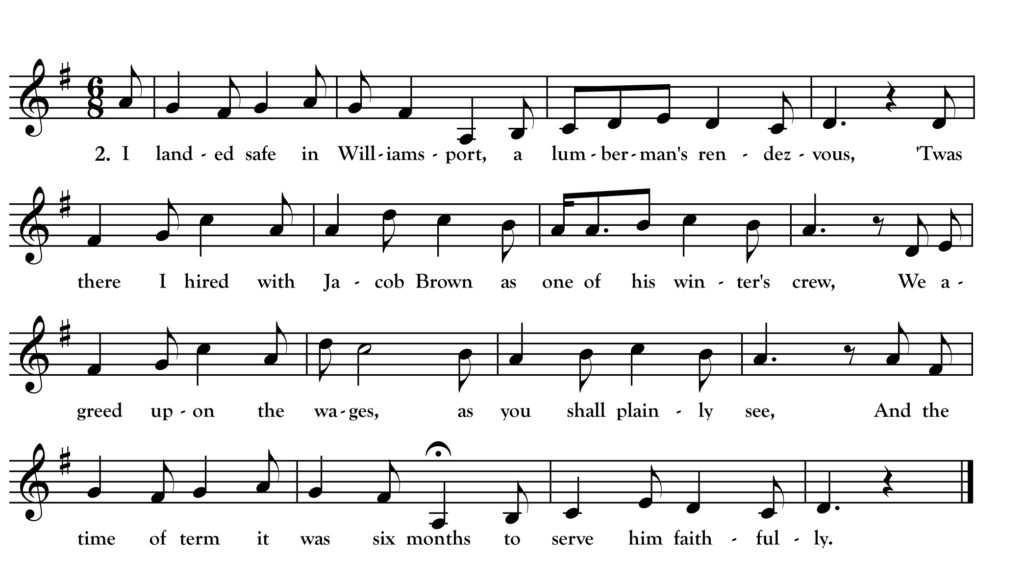The Wild Irishman

I am a wild Irishman right in my prime,1
I came from a city it’s famed and renowned,
The land that I come from, they called it Glendark,2
And the name that I go by is Wild Sporting Pat.
Twas mashalin dah, Erin Go Bragh,
The land of my father shillelagh and ah.
I was in a hurry all for to get there,
If you’d seen me you’d thought I was going to a fair,
And when I arriv-ed upon New York green,
There was two big baffers3 to da [?] to be seen.
I took my shillelagh fast in my right hand,
I walk-ed up to him at the word and command,
I gave him the weight of it over his head,
And you’d [have] swore to your soul he was seven years dead.
There was five thousand people stood there on the green,
In less than ten minutes not one to be seen,
One said to the other “why don’t you run quick,”
“Do you see the wild Irishman winding his stick?”
We have another song this month from Margueritte Olney’s 1942 visits to Colebrook, New Hampshire where she collected songs from Belle Luther Richards and her brother Sidney Luther. The above song is my own transcription made completely from Olney’s recording of Sidney Luther.
The song is an Americanized version of a broadside titled “The Wild Irishman in London.” The plot is similar to that of the song “Erin-go-Bragh” which was made popular in the 1980s by the masterful arrangement recorded by Scottish singer Dick Gaughan.
The Flanders Ballad Collection includes, along with Luther’s version, a variant from Maine and collector Franz Rickaby also found it in the remote northern North Dakota town of Westhope where it was sung by Mrs. J. G. Krebs when he visited her in January, 1920. The Flanders recordings are available online via archive.org. Rickaby’s transcription of Krebs appears in the book Folk Songs Out of Wisconsin.
1 Krebs sings “I am a wild Irishman just come to town” which makes the rhyme work better
2 It’s hard to tell exactly what Luther sings here. Could be a reference to Glendarragh – a townland name in both Wicklow and Limerick.
3 Krebs’ version has the Irishman fighting with “butchers” and another version from Maine has “bullies.” It’s hard to tell what Luther sings here.


